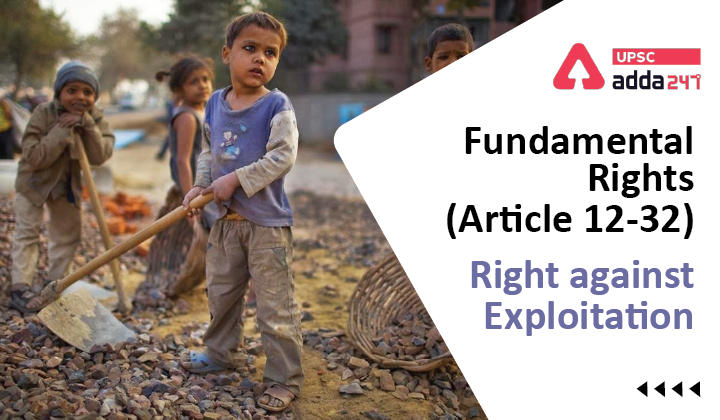Table of Contents
स्वतंत्रता का अधिकार (अनुच्छेद 19-22) – यूपीएससी परीक्षा के लिए प्रासंगिकता
- जीएस पेपर 2: भारतीय संविधान- ऐतिहासिक आधार, उद्विकास, विशेषताएं, संशोधन, महत्वपूर्ण प्रावधान एवं आधारिक संरचना।
मौलिक अधिकार (अनुच्छेद 12-35) – पृष्ठभूमि
- मूल अधिकारों के बारे में: भारत के संविधान के अंतर्गत प्रत्याभूत मूल अधिकार अपनी प्रकृति में मौलिक हैं क्योंकि उन्हें देश की मूलभूत विधि के अंतर्गत सम्मिलित किया गया है।
- अधिकारों का शाब्दिक अर्थ उन स्वतंत्रताओं से है जो व्यक्तिगत कल्याण के साथ-साथ संपूर्ण समुदाय के कल्याण हेतु आवश्यक हैं।
- मूल अधिकार (अनुच्छेद 12-35) जाति, धर्म, लिंग इत्यादि के आधार पर विभेद के बिना लागू होते हैं।
- मूल अधिकारों का मुख्य अधिदेश: भारत में राजनीतिक लोकतंत्र के आदर्शों को प्रोत्साहित करने के उद्देश्य से भारतीय संविधान में मूल अधिकार प्रदान किए गए हैं।
- मूल अधिकारों के स्रोत: भारतीय संविधान के मूल अधिकार (फंडामेंटल राइट्स) की उत्पत्ति अमेरिकी संविधान (संयुक्त राज्य अमेरिका के अधिकार विधेयक/ यूनाइटेड स्टेट्स बिल ऑफ राइट्स) से हुई है।
यूपीएससी एवं राज्य लोक सेवा आयोगों की परीक्षाओं हेतु नि शुल्क अध्ययन सामग्री प्राप्त करें
शोषण के विरुद्ध अधिकार (अनुच्छेद 23-24): मुख्य बिंदु
- शोषण के विरुद्ध अधिकार के बारे में: समाज के कमजोर वर्गों की रक्षा के लिए, भारतीय नागरिकों को संविधान के अनुच्छेद 23 एवं अनुच्छेद 24 के माध्यम से शोषण के विरुद्ध अधिकार की प्रत्याभूति प्रदान की गई है।
- महत्व: शोषण के विरुद्ध मौलिक अधिकार देश में एक नागरिक की रक्षा करता है तथा उसे सुरक्षित एवं संरक्षित महसूस कराता है। यह भारतीय समाज के असुरक्षित तथा कमजोर वर्ग के अधिकारों की रक्षा करता है।
शोषण के विरुद्ध अधिकार (अनुच्छेद 23-24): मुख्य प्रावधान
- मानव दुर्व्यापार तथा बलात् श्रम का निषेध (अनुच्छेद 23): मानव दुर्व्यापार तथा बेगार एवं इसी प्रकार के अन्य बलात् श्रम निषिद्ध हैं तथा इस प्रावधान का कोई भी उल्लंघन कानून के अनुसार दंडनीय अपराध होगा।
- मनुष्य के दुर्व्यापार का अर्थ है भौतिक वस्तुओं के रूप में मनुष्य को बेचना एवं खरीदना।
- दुर्व्यापार, विशेष रूप से युवा महिलाओं, बालिकाओं एवं यहां तक कि बालकों का, एक अवैध व्यापार के रूप में जारी है।
- कारखानों इत्यादि में बालकों के नियोजन का निषेध (अनुच्छेद 24): जैसा कि संविधान प्रावधानित करता है, चौदह वर्ष से कम आयु के किसी भी बच्चे को किसी कारखाने या खदान में काम करने के लिए अथवा किसी अन्य खतरनाक रोजगार में नहीं लगाया जाएगा।
- इस अधिकार का उद्देश्य सर्वाधिक गंभीर समस्याओं में से एक, बाल श्रम को समाप्त करना है, जिसका भारत सदियों से सामना कर रहा है।
- बच्चे समाज की संपत्ति हैं। सुखी बाल्यावस्था का आनंद लेना एवं शिक्षा प्राप्त करना उनका मूल अधिकार है।




 TSPSC Group 1 Question Paper 2024, Downl...
TSPSC Group 1 Question Paper 2024, Downl...
 TSPSC Group 1 Answer key 2024 Out, Downl...
TSPSC Group 1 Answer key 2024 Out, Downl...
 UPSC Prelims 2024 Question Paper, Downlo...
UPSC Prelims 2024 Question Paper, Downlo...
